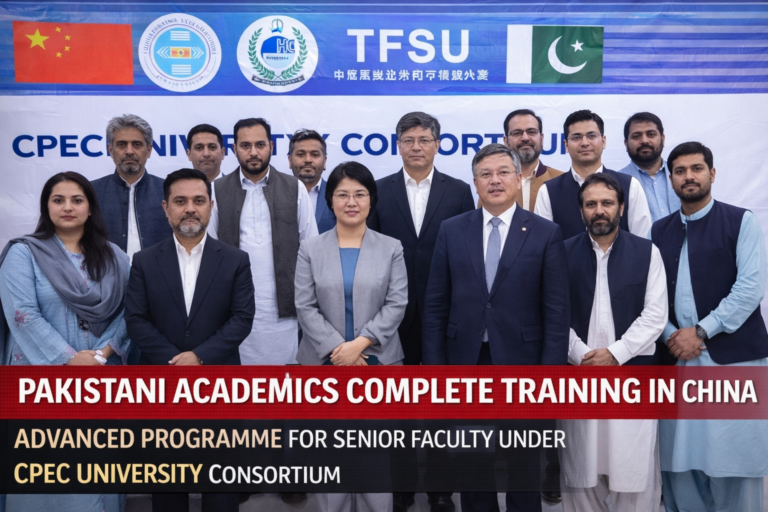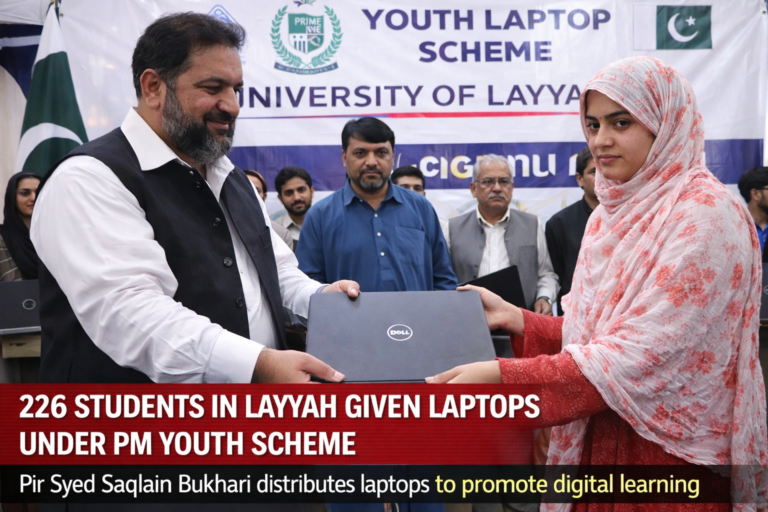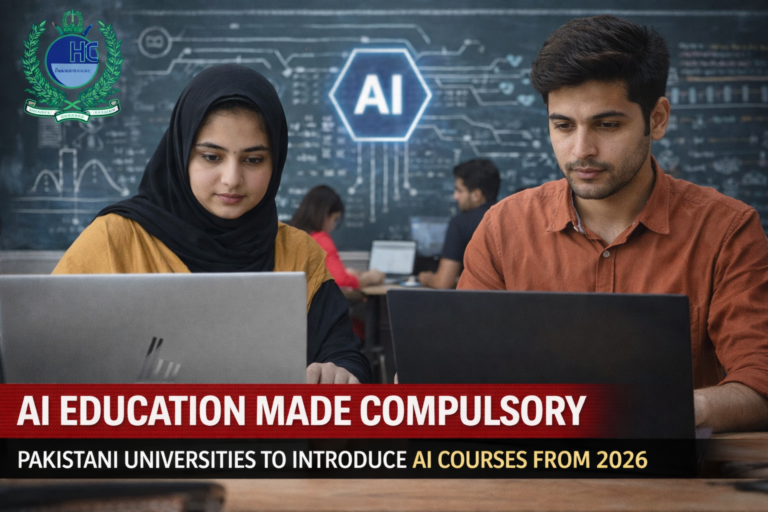Introduction
The National Vocational and Technical Training Commission (NAVTTC) of Pakistan has embarked on an ambitious journey to transform the country’s workforce. With the rapid pace of globalization and technological advancements, Pakistan’s economy faces the urgent need for a workforce that is not only skilled but also adaptable to the demands of the global market. As part of this transformation, NAVTTC is focusing on creating a workforce that can thrive in a world increasingly driven by innovation, digitalization, and sustainable development.

In this blog, we will explore how NAVTTC 2025 aims to reshape Pakistan’s workforce, addressing the country’s skills gap, boosting economic growth, and empowering individuals with the tools they need to succeed in a competitive global economy.
Key Points Overview
NAVTTC’s strategy is multi-faceted, targeting various aspects of education and workforce development. Some of the key components of NAVTTC 2025 include:
- Skills Development Programs: Targeted at upskilling Pakistan’s youth to meet international labor market demands.
- Digital Training and Technology Integration: Acknowledging the rise of digital economies and incorporating tech-driven education into vocational training.
- Public-Private Partnerships: Encouraging collaboration between the government, educational institutions, and industry leaders to enhance skill training programs.
- Global Standards of Education: Aligning with international standards to ensure that Pakistan’s workforce can compete globally.
- Employment Opportunities for Youth: Empowering youth through targeted vocational courses that lead to meaningful employment.
Let’s dive deeper into how these strategies are shaping Pakistan’s workforce for a global economy.
Detailed Discussion
Addressing the Skills Gap in Pakistan
One of the most significant challenges Pakistan faces today is the widening skills gap. According to reports, a large portion of Pakistan’s youth remains unemployable due to a lack of market-relevant skills. NAVTTC’s initiatives aim to bridge this gap by offering training programs that focus on both technical and soft skills. These programs are designed to provide young Pakistanis with the expertise needed in high-demand sectors like manufacturing, IT, healthcare, and more.
By offering hands-on training in these fields, NAVTTC is equipping individuals with the skills that employers need. The result is a more capable and confident workforce that can contribute to economic growth and take advantage of emerging opportunities.
Embracing Technology in Vocational Training
The integration of technology into Pakistan’s vocational training landscape is a pivotal aspect of NAVTTC 2025. The rapid rise of automation, artificial intelligence (AI), and digitalization means that traditional training methods are no longer sufficient. NAVTTC’s push towards incorporating digital tools and platforms into training programs will not only improve the accessibility of vocational education but will also prepare students for the future of work.
For example, digital literacy programs will ensure that Pakistan’s youth can navigate the digital economy with confidence. Furthermore, virtual training platforms and AI-driven courses will allow students to learn at their own pace, regardless of geographical barriers. This tech-driven approach aligns with global trends where online education and digital certifications are becoming the norm.
Public-Private Partnerships: A Winning Strategy
NAVTTC’s strategy also includes fostering partnerships with the private sector. Collaboration between the government and industry leaders will ensure that training programs are tailored to meet the real needs of businesses. Private sector involvement also increases the chances of direct employment post-training, providing students with a seamless transition from education to the workforce.
These partnerships are essential for closing the gap between what students learn in vocational schools and what employers are looking for. By aligning educational outcomes with industry demands, NAVTTC is helping young Pakistanis secure stable, well-paying jobs both locally and internationally.
Meeting International Standards
Another critical aspect of NAVTTC 2025 is ensuring that Pakistan’s vocational training programs adhere to international standards. This is crucial for enabling Pakistani workers to compete in the global job market. NAVTTC is working with international organizations to align its curriculum and certification process with global industry standards, giving Pakistani graduates a competitive edge in countries that require specialized technical skills.
For example, NAVTTC has been working on establishing equivalence with international certification bodies, allowing Pakistani graduates to access employment opportunities abroad. The goal is to create a workforce that meets the stringent demands of global employers while fostering local talent at home.
Youth Empowerment and Employment Opportunities
A central component of NAVTTC 2025 is empowering Pakistan’s youth by providing them with the skills necessary to thrive in a rapidly changing job market. The programs target marginalized groups, women, and individuals in rural areas, ensuring inclusivity in skill development. By offering training that directly correlates with job creation, NAVTTC is addressing youth unemployment in Pakistan, which has been a persistent challenge.
The economic impact of these initiatives cannot be overstated. As more young people gain relevant skills and secure employment, they will contribute to the growth of the economy and reduce the overall unemployment rate. This, in turn, will create a more robust economy capable of competing on the global stage.
Read a detailed blog about how to apply for NAVTTC free courses.
Conclusion
NAVTTC 2025 is not just a training program; it’s a transformative vision for Pakistan’s workforce. By focusing on skills development, digital education, public-private partnerships, and international standards, NAVTTC is laying the foundation for a future where Pakistan’s youth are equipped to thrive in the global economy. As the world moves towards a more interconnected, digital-first economy, NAVTTC’s initiatives will ensure that Pakistan’s workforce remains competitive, adaptable, and prepared for the challenges ahead.
It’s an exciting time for Pakistan’s workforce, as these changes will unlock new opportunities for both individuals and the nation as a whole. By investing in the skills of tomorrow, NAVTTC is shaping a prosperous future for Pakistan.
FAQs
Q1: What is NAVTTC and what role does it play in Pakistan’s workforce development?
A1: NAVTTC (National Vocational and Technical Training Commission) is a government body that oversees vocational and technical training in Pakistan. Its primary role is to bridge the skills gap in the country by providing market-relevant training programs to youth and adults, preparing them for employment opportunities locally and internationally.
Q2: How is NAVTTC addressing the skills gap in Pakistan?
A2: NAVTTC is offering targeted skills development programs that focus on both technical and soft skills. By aligning these programs with the needs of the labor market, NAVTTC is ensuring that Pakistan’s youth are equipped with the skills required to succeed in various industries, including IT, healthcare, manufacturing, and more.
Q3: What are the benefits of digital training under NAVTTC 2025?
A3: Digital training provides access to online learning platforms, ensuring that education is accessible to people across Pakistan. It also helps young people develop digital skills, which are essential in today’s increasingly tech-driven economy. Moreover, it enables flexible learning opportunities through virtual classes and AI-driven courses.
Q4: How does NAVTTC’s focus on public-private partnerships benefit students?
A4: Public-private partnerships allow NAVTTC to collaborate with businesses and industry leaders, ensuring that training programs are tailored to meet the actual needs of the labor market. These partnerships also help students find direct employment opportunities, reducing the skills gap between education and industry requirements.
Q5: What impact will NAVTTC’s initiatives have on Pakistan’s global competitiveness?
A5: By aligning its training programs with international standards, NAVTTC is ensuring that Pakistan’s workforce can compete globally. This will allow Pakistani workers to find job opportunities abroad and help local businesses access a highly skilled labor pool that meets global quality standards.




